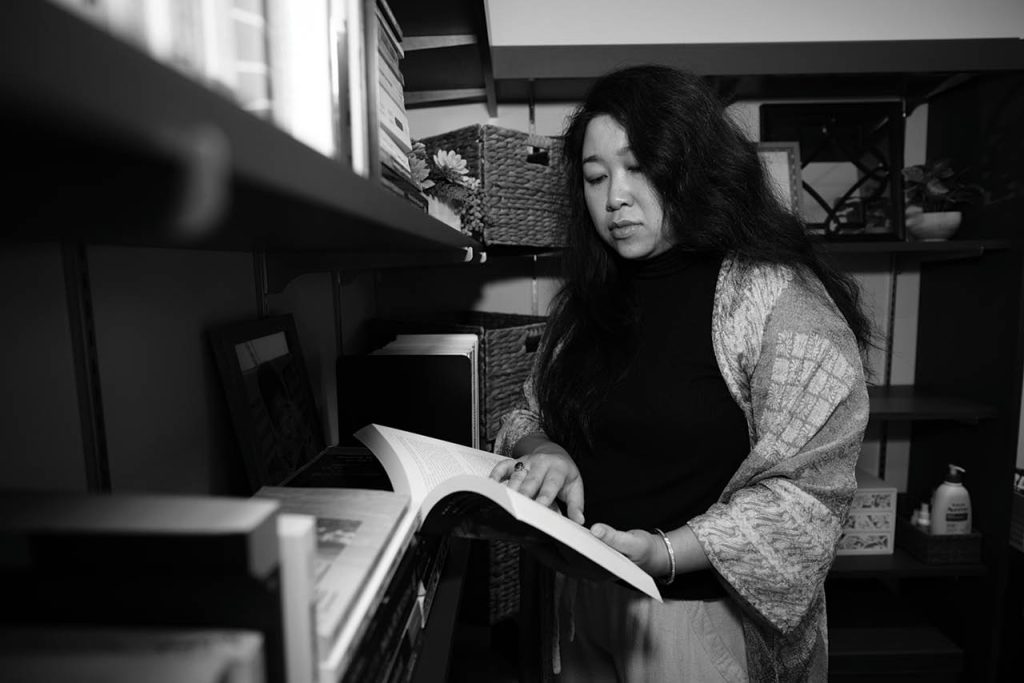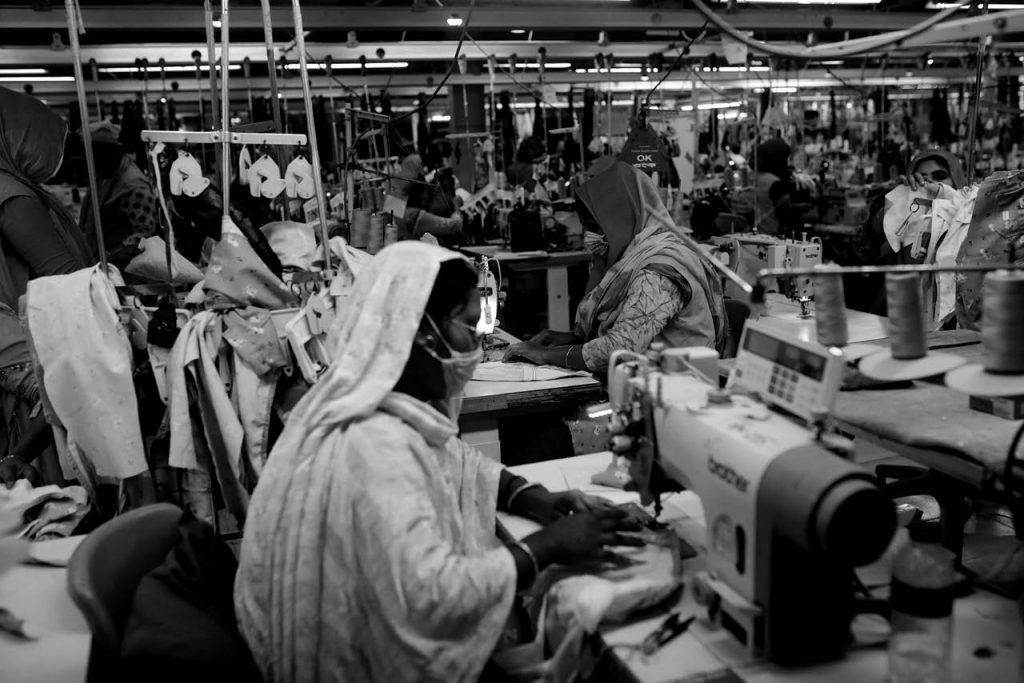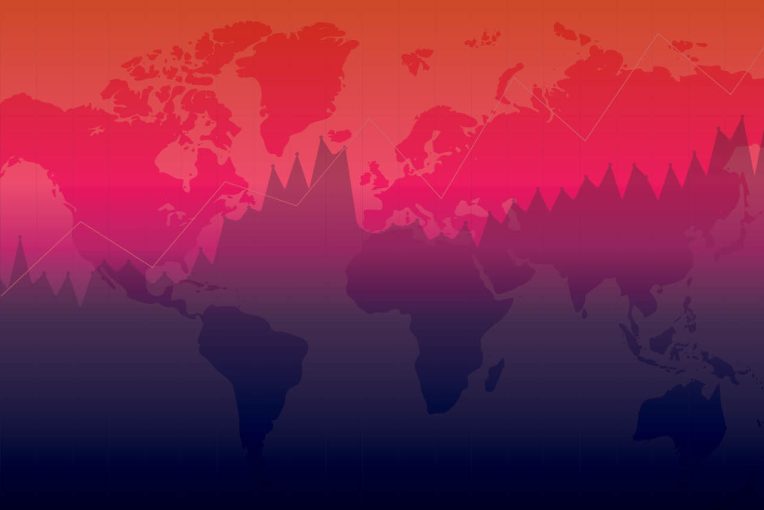Amid a surge of COVID-19 infections in early 2021, Vietnamese factory workers faced a no-win decision: Leave their homes and families to live full-time in company-designated spaces to keep factories operating or lose their jobs.
Multinational corporations navigating major supply chain disruptions needed the factories that made microchips and other high-demand technology to keep producing. Most of these factories are in the Global South, a group of countries sometimes described as “developing” mainly in Africa, Asia, and Latin America.
The working class, primarily in the Global South, bore the burden as tech giants enjoyed record profits, according to Dr. Intan Suwandi, an assistant professor of sociology at Illinois State University who studies “catastrophe capitalism.”
“In the time of catastrophe, capitalism continues to benefit,” Suwandi said. “You can see this from whose profits get higher. Capitalism keeps gaining profits while workers are in a disadvantaged position, especially workers of color and ‘essential workers.’ They really suffered during COVID.”
–Dr. Intan Suwandi
“The commodities we use connect us to workers all over the world. These commodities are a product of labor, and it’s important for us to understand the system.”
Suwandi’s findings were published in the journal International Critical Thought. She and her co-author, Dr. John Bellamy Foster, wrote that disasters such as the COVID-19 pandemic are a consequence of capitalism. They cited critical epidemiologists who connected the growth of corporate agribusiness with an increased risk of zoonosis, a disease that can be transmitted to humans from animals, such as the coronavirus.
“The pandemic was not a random ‘black swan’ event,” Suwandi said. “It is a reflection of a structural crisis of capital. It is caused by several factors, including the role of agribusiness in causing deforestation and ecosystem destruction. Animals are losing their habitats, and they’re becoming closer to human societies, which is making it more possible for zoonotic pathogens that originated in remote areas to jump from nonhumans to the human species, and, in the end, travel to highly populated areas around the world.”
Suwandi not only contends that capitalism is an accomplice in some major natural disasters, but she’s also found that capitalism benefits from catastrophes and intensifies “imperial value,” the centuries-long domination of the Global North over the Global South.
“The goal is to keep supporting global capitalism through production in the Global South,” she said. “The Global North enforced its power during the pandemic and forced the Global South to continuous production. It is based on the logic of capital accumulation.”

Suwandi said multinational corporations rely on tens of millions of factory workers in the Global South to support just-in-time manufacturing, which attempts to match production to demand by only manufacturing goods that have been ordered instead of creating a surplus of goods.
The components of a cell phone, for example, are manufactured at dozens of different factories on demand and assembled just in time to fulfill pending orders. If demand suddenly increases, such as during the holiday shopping season, factories must ramp up production.
“This is often due to direct pressures from the lead firm, the multinational corporation, headquartered in countries such as the United States,” Suwandi said. “This strategy maximizes profits but forces workers—for example, the Chinese workers who assembled this phone—into irregular schedules with long hours and other exploitative practices.”
She said the pandemic and its ensuing supply chain crisis ironically prompted corporations to gain even more control over their suppliers to maintain the lucrative just-in-time process.
“In the end, workers are the ones who bear the burden in this system,” Suwandi said. “A lot of times the demand is for them to increase productivity. This can be done, for example, through a series of mechanisms—think management practices—that increase the control
of the labor process.”
Another consequence of catastrophe capitalism has been the inequitable global distribution of COVID-19 vaccines, according to Suwandi.
“There’s a lot of inequality in the distribution of vaccines to the Global South,” she said.
According to Our World in Data, 70.6% of the world had received at least one dose of a COVID-19 vaccine by the end of 2023, while only 32.9% of people in low-income countries, many of which are in the Global South, had received at least one dose.
–Dr. Intan Suwandi
“There are centuries of imperialist relations between the Global North and the Global South that create dependency and underdevelopment. We can see the consequences now, including catastrophe capitalism.”
“Vaccine research was done by public entities, but then it was privatized and expropriated by big pharma, and Global North countries pretty much hogged the vaccines,” Suwandi said.
A native of Indonesia, in the Global South, Suwandi’s research is personal. She grew up wondering why her country was considered “developing.” Her desire to understand this term and its implications motivated her to study sociology and earn a Ph.D. from the University of Oregon.
“As a scholar in the social sciences, I now know that there are dominant paradigms, and this is one,” Suwandi said. “Development narratives say developed countries are ‘better,’ basically. And we must challenge this idea.”
It’s Suwandi’s goal to help students in her sociology courses understand the history that’s shaped the Global North’s relationship with the Global South and the implications of imperial value on billions of people around the globe.
“There are centuries of imperialist relations between the Global North and the Global South that create dependency and underdevelopment,” Suwandi said. “We can see the consequences now, including catastrophe capitalism.”
Suwandi’s students often wonder how they can address this seemingly insurmountable, global issue. Education, Suwandi says, is the first step.

“A lot of these issues affect workers in the Global South. But it’s so important to bring it into the classroom here at ISU because a lot of students aren’t aware that these issues are related to us very closely,” Suwandi said. “The commodities we use connect us to workers all over the world. These commodities are a product of labor, and it’s important for us to understand the system.”
For those of us living in the Global North, Suwandi suggests limiting overconsumption. Don’t buy an iPhone every time a new model comes out, for example. But that’s not an all-encompassing solution, Suwandi cautions.
“Not even close,” Suwandi said. “We have to tackle the whole system.”
Through future research, Suwandi plans to engage with labor experts and policymakers who have the power to impact the inequalities she brings to light, particularly related to catastrophe capitalism.
“I hope to contribute to conversations about policy changes in the Global South that can improve working conditions,” Suwandi said. “This is a part of the larger discussion of how Global South countries and peoples can engage in resistance against capitalism using various strategies.”
To achieve a more equitable relationship with multinational corporations, she said members of the working class in the Global South must increase their bargaining power. Suwandi noted that they have been actively organizing throughout history, and she hopes her research can help their continuous efforts.
“I believe that if fundamental changes are to happen,” Suwandi said, “they have to be from grassroots movements by the working class.”

